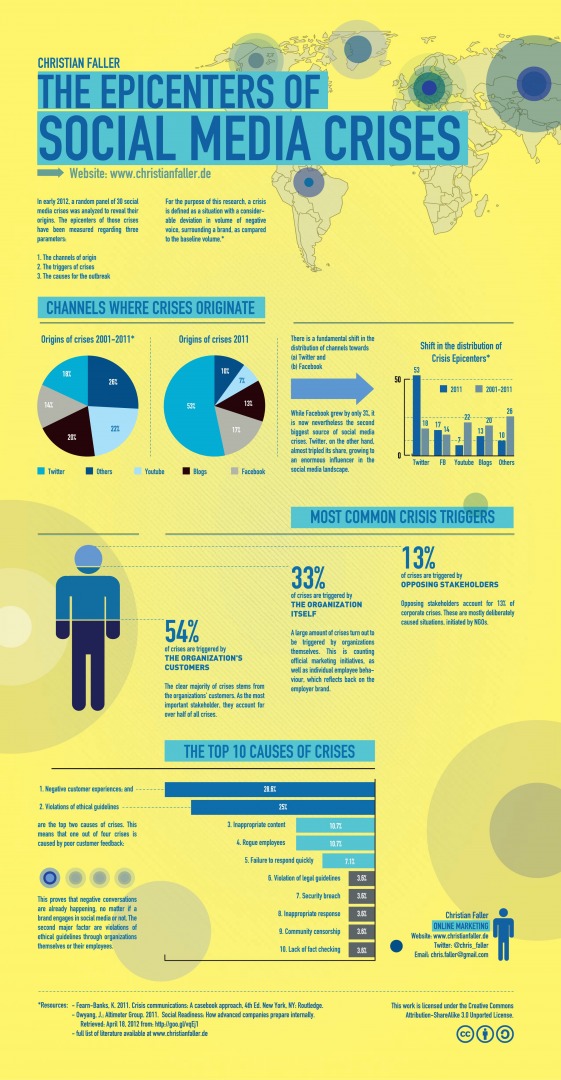On the social web, issues are often raised before the company in question is even aware of there being a problem. In cases such as these, the community manager is the first line of defence.

Monitoring
Although a single negative tweet about your product or service could turn out to be an anomaly, there is a fair chance that it could in fact be a symptom of a deeper systemic problem. What a community manager can bring to the table is to help an organization get the inside track on a problem before it develops into a crisis, by monitoring social media sites, forums, and blogs for warning signs, and provide solutions for dealing with it.
Marshalling the Troops
In the event that a crisis is unfolding, the community manager’s main task is to get all the interested parties together – ie the people that work in the relevant departments of the company affected – and get them to understand their role. It is their job to keep a list of these people and marshall their efforts towards resolving the problem. Depending on the problem – and its severity – this could extend to several different departments including PR, legal/compliance, customer support, human resources, security, or even the executives of a firm.
Planning
After all the relevant parties in a company have been brought up to speed on the situation and informed of the need to work together, a plan needs to be put in place. Although the community manager might not necessarily be the person that leads this project in terms of execution, they play a critical role in outlining the plan of action and corralling the relevant parties into playing their part in the right way – and at the right time.
Responding to Customers
In a crisis situation, the community manager’s job is to work in tandem with the PR and customer service teams in order to ensure that the needs of customers are being adequately – and crucially, correctly – dealt with. If there is no obvious ‘magic bullet’ solution to the crisis, the least that they can do is to let customers know that they are aware of the situation, that they fully understand and empathise with their concerns, and that they are going beyond and above the call of duty to correct it.
Prioritization
Although it’s true that every customer is important, and this is certainly the message that should come across, it’s also true that some customers are more influential than others in the social media sphere. Simply put, there are some people that are more important to keep sweet than others, due to their extended reach on social media. One of the key responsibilities of a community manager is to know who these customers are, who they are most closely connected to in terms of your own company and the wider social media sphere. This can inform the most appropriate course of action, whether it means somebody making a personal phone call, email, or text to address the situation, or in the case where there is no immediate connection and a more direct, impersonal approach is required.
Calling it Quits – Publicly
The desired endgame of any crisis situation is that a solution will be reached that satisfies both parties. In these situations, it is relatively uncommon for the party that caused the commotion in the first place to widely publicize that a resolution has been reached. In this situation, it is the role of the community manager to make it known that the problem has been solved in a way that reaches as wide an audience as possible without drawing negative publicity towards the company they represent. This entails announcing a resolution, along with some guidance as to what the company is doing to prevent similar episodes occurring in future, and expressing gratitude to customers for their continued support..
I am a writer based in London, specialising in finance, trading, investment, and forex. Aside from the articles and content I write for IntelligentHQ, I also write for euroinvestor.com, and I have also written educational trading and investment guides for various websites including tradingquarter.com. Before specialising in finance, I worked as a writer for various digital marketing firms, specialising in online SEO-friendly content. I grew up in Aberdeen, Scotland, and I have an MA in English Literature from the University of Glasgow and I am a lead musician in a band. You can find me on twitter @pmilne100.













